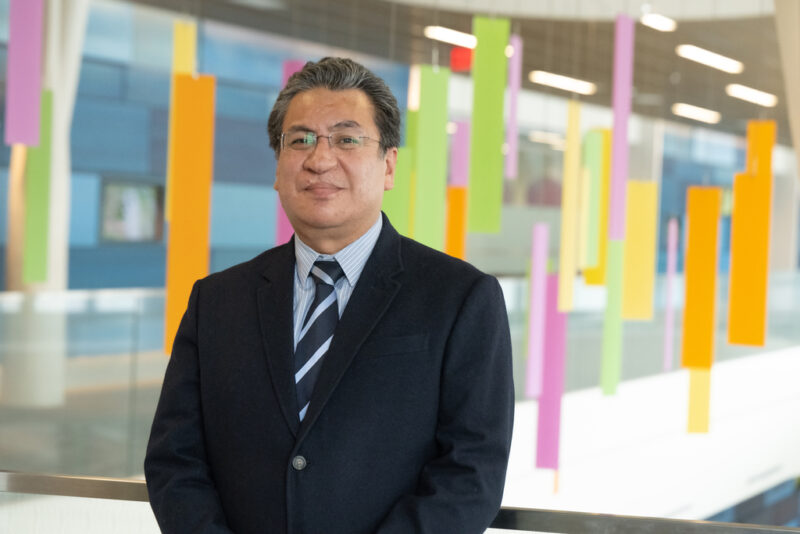
Mario Morelos, regional advocacy, injury prevention coordinator at Akron Children’s.
National Hispanic Heritage Month is observed annually Sept. 15-Oct. 15. It’s a time to honor and celebrate the culture, heritage and contributions of Hispanic Americans, whose ancestry originates in Spain, Mexico, the Caribbean, and Central and South America.
To recognize the month, Mario Morelos, regional advocacy, injury prevention coordinator, shares more about his work and how he celebrates Hispanic culture.
What is your role at Akron Children’s, and how long have you been with the hospital?
I’m a regional advocacy injury prevention coordinator, and I’ve been with the hospital for one year. This role involves a variety of tasks and responsibilities aimed at reducing injuries, promoting safety, and improving the overall well-being of the community within a specific region. It requires a combination of public health knowledge, program management skills, advocacy and community engagement.
What do you enjoy most about your work at Akron Children’s?
Making a positive impact on the health and safety of the local community is incredibly fulfilling. Building partnerships and collaborating with a wide range of stakeholders, including community organizations, government agencies, health care professionals, and educators, is intellectually stimulating and socially enriching. Working together with a fantastic team in our External Affairs department creates a delightful workplace environment.
As a Hispanic American, what does National Hispanic Heritage Month mean to you?
I think that Hispanic Heritage Month is an opportunity for all members of the Hispanic community to reflect about how our cultures have influenced and shaped other cultures and places, and the fact that our culture is something we should be proud of. It is a time of the year when we commemorate the distinct contributions that Hispanics have made to the United States and celebrate the rich tapestry of our community.
How do you recognize, honor and celebrate your Hispanic heritage?
I’m an immigrant from Mexico and Spanish is my first language. To me, recognizing, honoring, and celebrating my Hispanic heritage is not just a once-a-year event. I enjoy every opportunity I have to share my culture and traditions with everyone, especially my children, and engage in community activities and festivals.
One of my favorite traditions is Día de Los Muertos (Day of the Dead) on November 1 and 2. To honor friends and family members who have died, we build a home altar called “ofrenda,” with photos, sugar skulls, vibrant crafty decorations, and their favorite foods and beverages. Mexican food is a delicious reflection of our heritage. We honor it by savoring traditional dishes like tamales, pozole, and mole, which have evolved from indigenous ingredients and techniques merged with Spanish flavors.
As we strive to deliver culturally competent care and create an inclusive environment for our patients and families, what would you like others to know?
While cultural competence is essential, it’s equally vital to embrace cultural humility. Acknowledge that we may not know everything about every culture, and it’s okay to ask questions and learn from our patients and families. This humility helps build trust and rapport. We ensure language access for all patients, including providing interpreters and translated materials as needed. Effective communication is key to delivering quality care.










